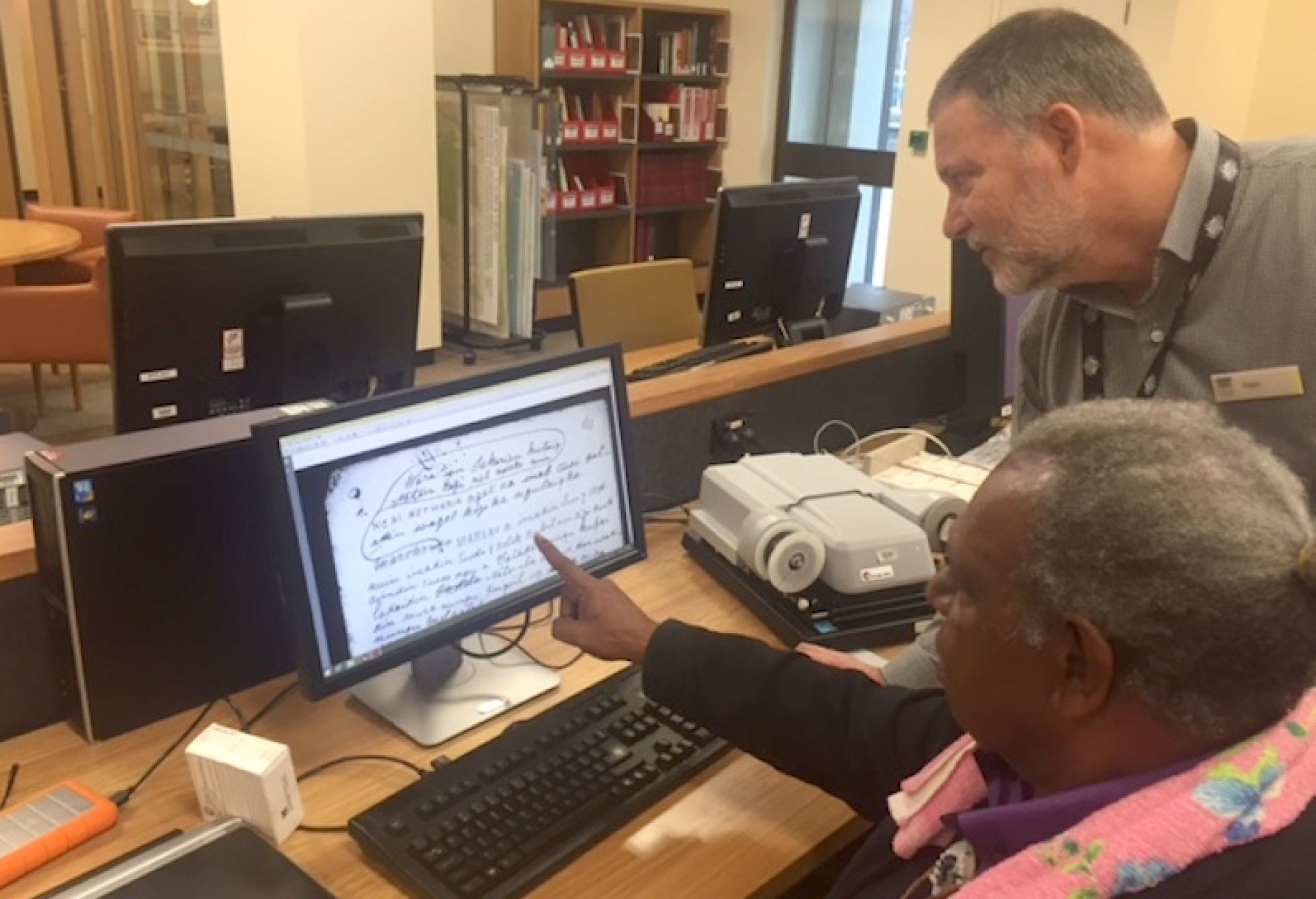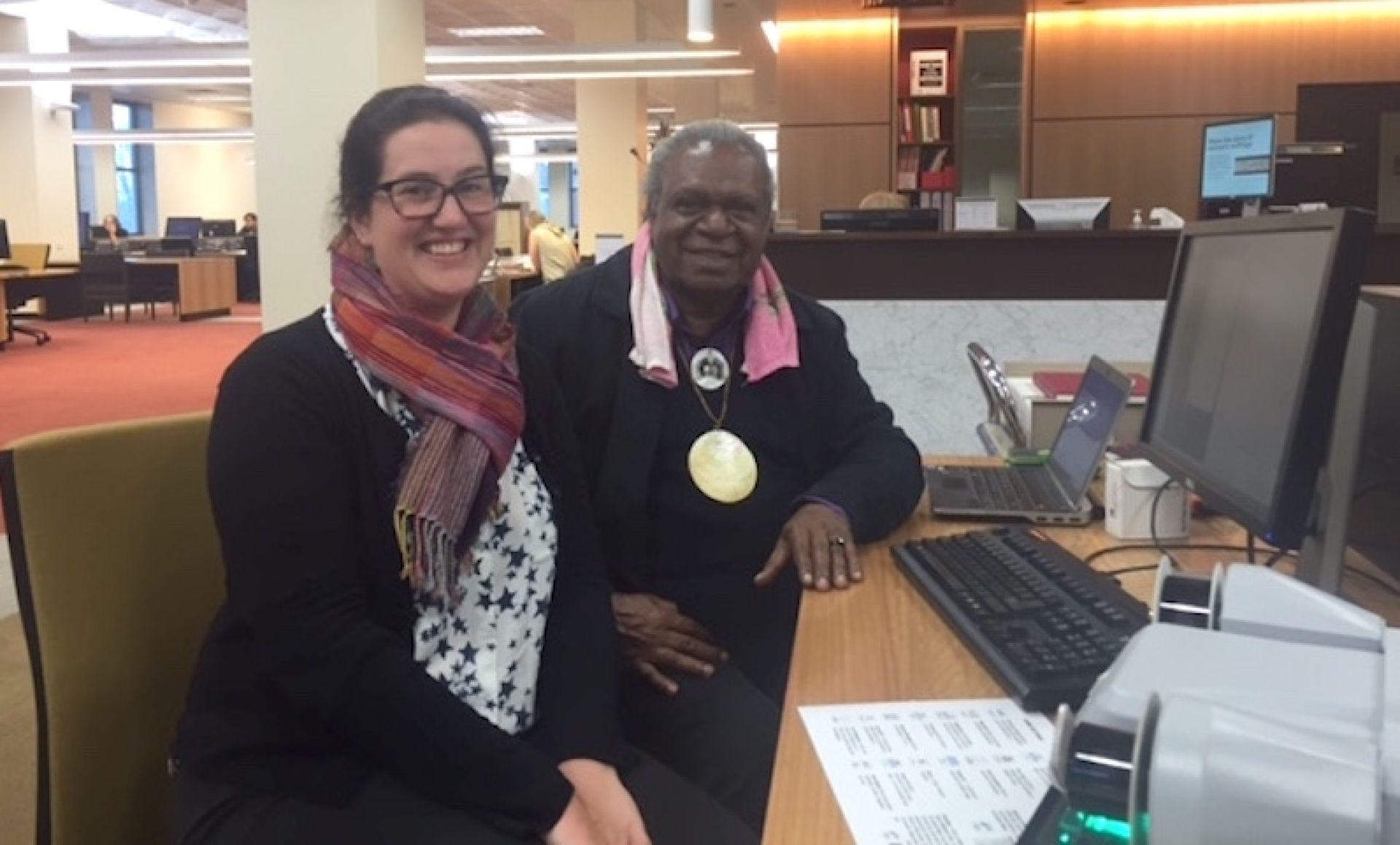

Batchelor Institute postgraduate student Uncle John Whop is bringing to life the extraordinary manuscript by a Mabuiag man named Waria, written during the Cambridge Anthropological Expedition to the Torres Strait in 1898.
Mr Whop, who is an Elder from the Torres Strait, is currently doing primary research for his Masters of Indigenous Perspectives at Batchelor Institute. His research covers an important part of the history of his home in the Torres Strait. Although Mr Whop’s thesis is primarily focused on a particular manuscript, his work and archival research is helping to contextualise this writing within the colonial landscape.
Waria’s manuscript is taken from the papers of Alfred Cort Haddon, a highly influential anthropologist and ethnologist born in 1855. He was instrumental in the founding of Cambridge University’s school of anthropology and led the expedition to the Torres Strait in 1898. His team also brought along cameras and recorded a number of films and photographs.
This thesis will provide a much-needed Indigenous perspective on a Mabuiag text and add to the understanding of how colonialism shaped the Torres Strait. The research hits close to home for Mr Whop, who currently resides on Thursday Island but whose family is from Mabuiag – one of the western islands of the Torres Strait.
Recently, Mr Whop visited Canberra on a research trip to the National Library of Australia. Here he was provided with a digitised version of Waria’s original manuscript. He also learned more about another member of the expedition named Anthony Wilkin, who unfortunately passed away on the return journey.
Mr Whop wants to make sure that Wilkin is adequately recognised for his contribution.
“You write what you see – that’s what I’m learning from archival research,” said Mr Whop.
“In western knowledge style, Haddon was the principle researcher. But we have identified someone who was responsible for taking photos of the ancestors. I’m writing this piece now, so I’m mentioning Wilkin. Because he contributed to the maintenance of the photographic record as the official photographer.”
“For Wilkin to take a photo of Waria, there has to be a relationship between them. I can only thank him for taking the photo. This was his contribution. Because we come from a culture where art in that form is so empowering, it captures a moment of time.”
This work will make Waria’s identity and ideas more accessible to Torres Strait Islanders and to the wider Australian community. It has been made possible through accessing the digitised manuscript and Mr Whop’s work in translating Waria’s words.
Mr Whop’s efforts exemplify Batchelor Institute’s ‘Both-ways’ philosophy, as he works to recognise the Mabuiag knowledge system and its engagement within a Western academic space – all whilst recognising the flow of information happening between the two cultures.
Despite his responsibilities as an Elder, being a White Ribbon ambassador and undertaking work in raising awareness about prostate cancer, Mr Whop still manages to write everyday. He hopes to complete his masters by the end of this year and looks forward to presenting his research in the coming months.

